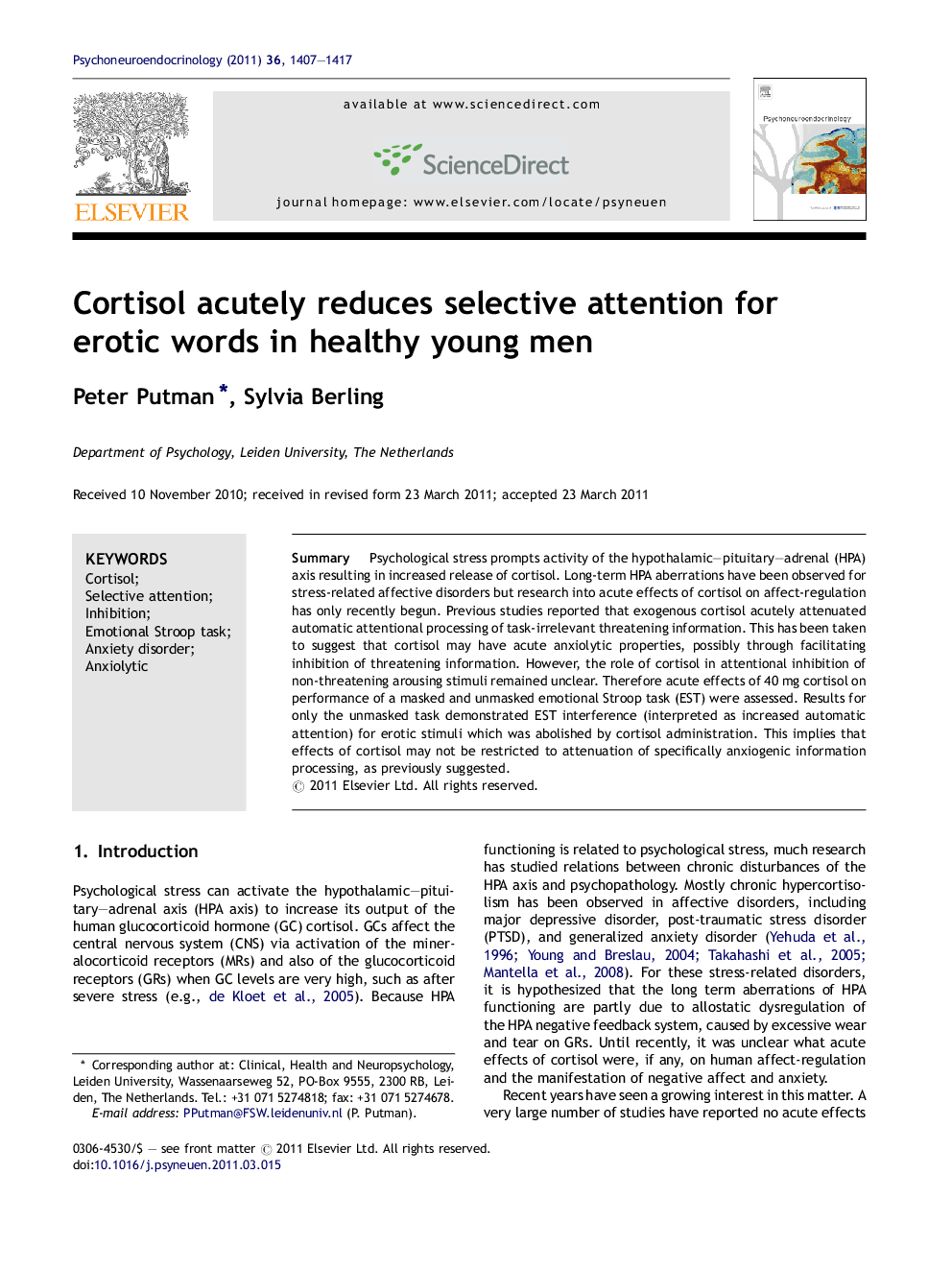| Article ID | Journal | Published Year | Pages | File Type |
|---|---|---|---|---|
| 10306400 | Psychoneuroendocrinology | 2011 | 11 Pages |
Abstract
Psychological stress prompts activity of the hypothalamic-pituitary-adrenal (HPA) axis resulting in increased release of cortisol. Long-term HPA aberrations have been observed for stress-related affective disorders but research into acute effects of cortisol on affect-regulation has only recently begun. Previous studies reported that exogenous cortisol acutely attenuated automatic attentional processing of task-irrelevant threatening information. This has been taken to suggest that cortisol may have acute anxiolytic properties, possibly through facilitating inhibition of threatening information. However, the role of cortisol in attentional inhibition of non-threatening arousing stimuli remained unclear. Therefore acute effects of 40Â mg cortisol on performance of a masked and unmasked emotional Stroop task (EST) were assessed. Results for only the unmasked task demonstrated EST interference (interpreted as increased automatic attention) for erotic stimuli which was abolished by cortisol administration. This implies that effects of cortisol may not be restricted to attenuation of specifically anxiogenic information processing, as previously suggested.
Related Topics
Life Sciences
Biochemistry, Genetics and Molecular Biology
Endocrinology
Authors
Peter Putman, Sylvia Berling,
